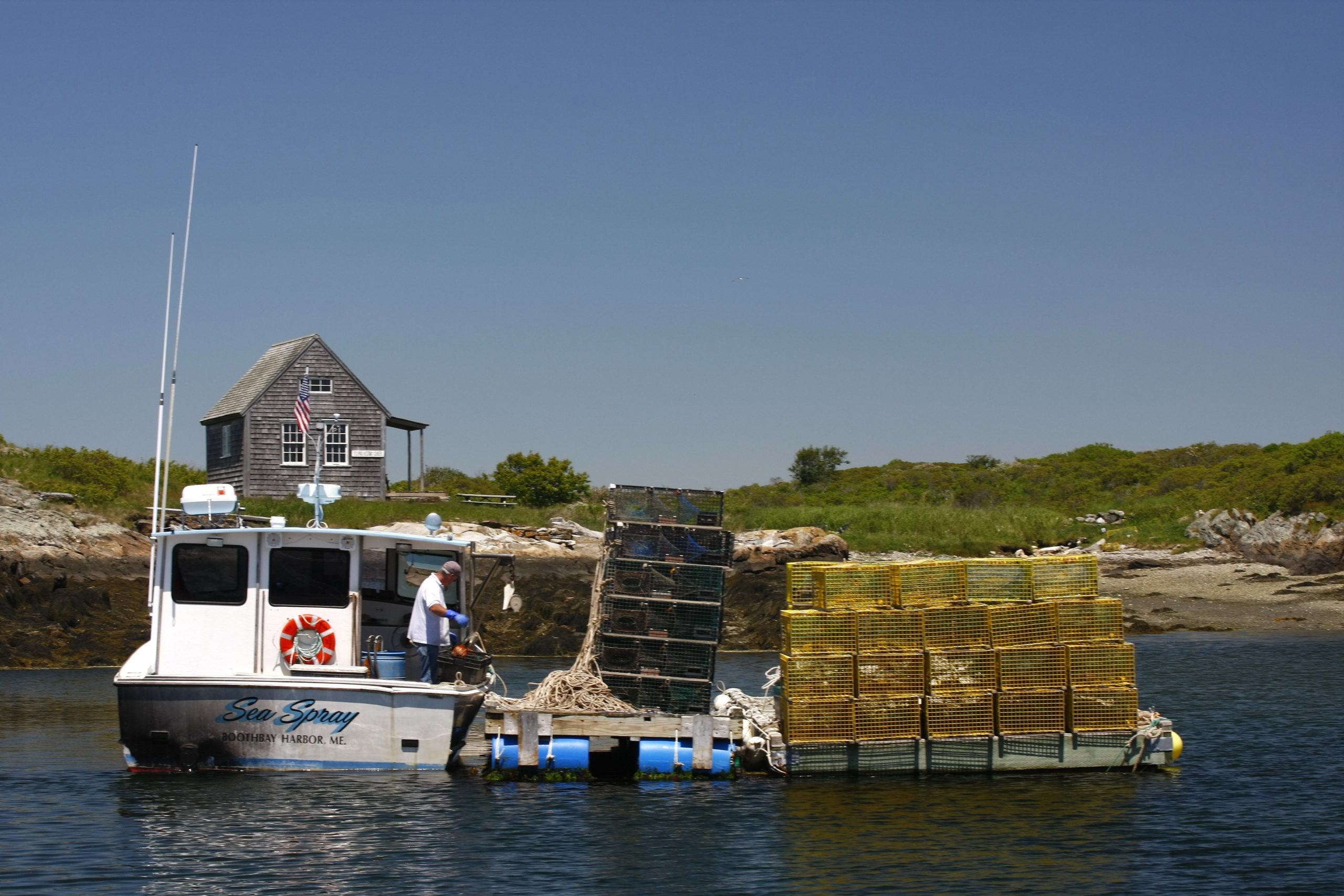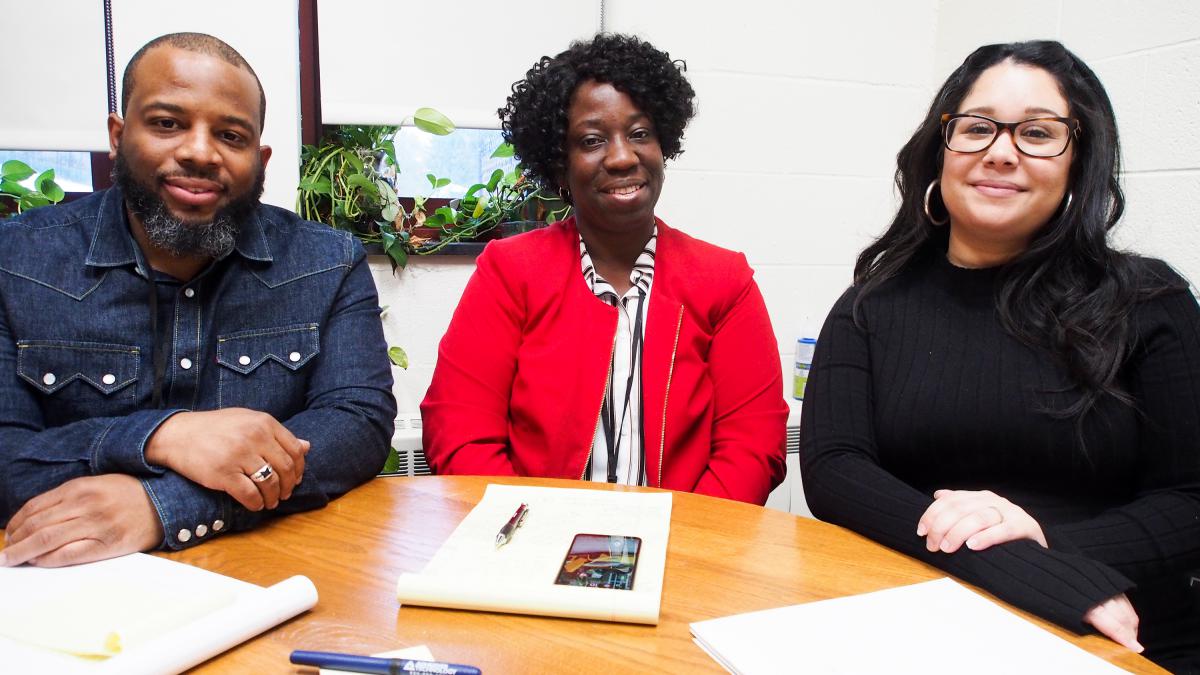Episode 193: Losing Sense Of Smell From COVID-19; New England Fishing Industry Takes a Hit
Loss of smell has emerged as a possible symptom of COVID-19. This week on NEXT, we delve into cases in Rhode Island and how the state is screening patients. Plus, a look at how the iconic New England fishing industry is navigating the pandemic. And we take a ride with a Boston limo driver who says this isn’t the first pandemic to touch his life.
A Missing Symptom of COVID-19 Screenings: Lost Sense of Smell

Alyssa Anderson is one of two nurses administering COVID-19 tests to patients at Saint Francis Hospital and Medical Center’s drive-thru mobile center on March 18 in Hartford, Conn. (Joe Amon/Connecticut Public/NENC)
Fever, dry cough and shortness of breath are the most common COVID-19 symptoms that the public is told to watch out for — and oftentimes the minimum symptoms that need to be present for an ill patient to get tested for the coronavirus.
Recently, Rhode Island health officials expanded the screening criteria for testing residents. But as Lynn Arditi reports for The Public’s Radio, this move did not include loss of smell, or anosmia, an emerging symptom of the coronavirus increasingly reported by doctors around the globe.
Maine’s Marine Economies Face Rough Waters

Lobster boat in Damariscove Harbor in Maine. (Rob Kleine/flickr)
Like most businesses out there, the iconic New England fishing industry has taken an economic hit during the coronavirus pandemic. In Maine, about 30,000 people depend on the state’s marine economies, and just about every one of them is dealing with the fallout.
Once restaurants in the region began closing their doors, the impact on seafood suppliers was swift.
“It was amazing how quickly it came crashing to halt,” Jeff Augur, river foreman for an oyster grower, told Maine Public’s Fred Bever. “This week, we all worked half the hours and then, unfortunately, we’ve had to furlough about 70-80 percent of the crew.”
NEXT Wants To Hear From You
The NEXT crew is about a month into social distancing and producing the show remotely. Our strategies for getting through these weeks have ranged from six minutes of nightly meditation…to a well-timed walk outdoors (at least six feet apart, of course). But we really want to know: How are you doing? Any coping mechanisms you want to share that can help out fellow New Englanders?
Leave us a voicemail on our comment line: 860-275-7595. Or shoot us an email at next@ctpublic.org. We look forward to hearing — and learning — from you.
Western Mass. Educators Seek Solutions For Chronic Shortage Of Teachers Of Color

From left, Damany Gordon is diversity and equity specialist at Amherst regional public schools; Doreen Cunningham is assistant superintendent of diversity, equity and human resources; and Jennifer Ortiz is an administrator of human resources. (Ben James/New England Public Radio)
Public schools across New England are closed for the next few weeks, and probably longer. But when they do re-open, one persistent problem remains: a shortage of teachers and administrators of color. The problem is a national one, but it’s very much on the minds of educators in western Massachusetts. From New England Public Radio’s Ben James, we hear what school districts are doing — or not doing — to hire and support more educators of color.
Also on this week’s show:
- A Limousine Driver Is Idled But Not Defeated By COVID-19 (WGBH)
- COVID-19 Is Changing How Vermonters Grieve, Care For The Dead (Vermont Public Radio)
- Gunshot Survivors Experience Significant Health Challenges After Release From Hospital (Guns & America)
About NEXT
NEXT is produced at Connecticut Public Radio
Host/Producer: Morgan Springer
Executive Editor: Vanessa de la Torre
Senior Director: Catie Talarski
Contributors to this episode: Lynn Arditi, Fred Bever, Phillip Martin, Ben James, Ryan Lindsay and Nina Keck.
Guests: Tyrek Marquez and Lily King.
Music: Todd Merrell, “New England” and “Rabbit Hole” by Goodnight Blue Moon, “Nowhere to Run” by Billy Wylder and “Green Eyes” by Phat Astronaut.
New to NEXT? You can find every episode or one you missed within our archives.
We want your feedback! Send critiques, suggestions, questions and ideas to next@ctpublic.org. Help us spread the word! If you like what you hear, rate and review us on iTunes.
